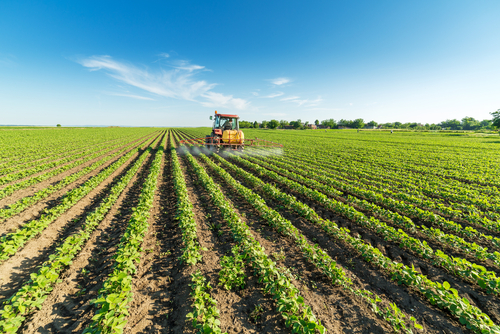U.S. Rep. Frank Lucas (R-OK) proposed a bill on Sept. 29 that would exclude agriculture from the U.S. Securities and Exchange Commission’s (SEC) climate disclosure rule.

The SEC’s proposed climate disclosure rule would mandate that public companies disclose climate-related information on a regular basis. The SEC’s comment period on the proposed rule closed in June and the agency is expected to issue a final rule this fall.
The congressman’s bill, the Protect Farmers from the SEC Act, H.R. 9063, has gained the support of numerous farming organizations.
“The Securities and Exchange Commission’s proposed climate disclosure rule could create substantial costs and legal liabilities for farm families. Unlike large corporations, farmers don’t have teams of compliance officers or attorneys dedicated to handling SEC compliance issues,” American Farm Bureau Federation President Zippy Duvall said.
The legislation was cosponsored by more than 100 Republicans, including Rep. Dan Newhouse (R-WA), chair of the Congressional Western Caucus.
“Farmers in Central Washington and across the country are struggling due to overreaching regulations, supply chain disruptions, labor shortages, and skyrocketing inflation. Imposing even more regulations on the men and women who produce the food for our families would be devastating at any time, but it may well cripple the entire industry when food prices are already at a 40-year high. The SEC’s proposed climate rules are a major government overreach and would make it nearly impossible for farmers to continue to farm the way they do—keeping sustainability and conservation in mind,” Newhouse said.
Kaitlynn Glover, executive director of natural resources for the National Cattlemen’s Beef Association, said the SEC’s climate disclosure rule would lead to unintended consequences for farms and ranches and add another regulatory burden on cattle producers.
The American Soybean Association (ASA), among others, concurs.
“While we understand SEC’s intentions, requiring all partners and suppliers of publicly traded companies to disclose their greenhouse gas emissions places a burden on farmers that they realistically are not equipped to shoulder,” Pam Snelson of the American Soybean Association and soy farmer from Wann, Okla., said.